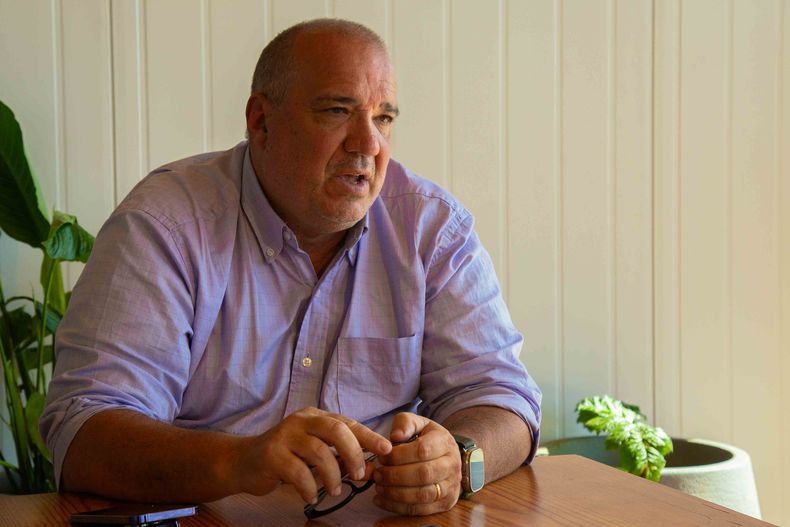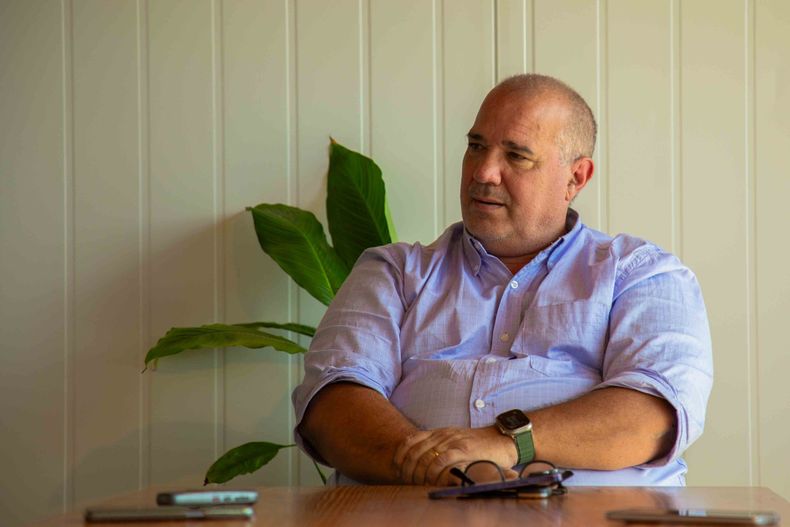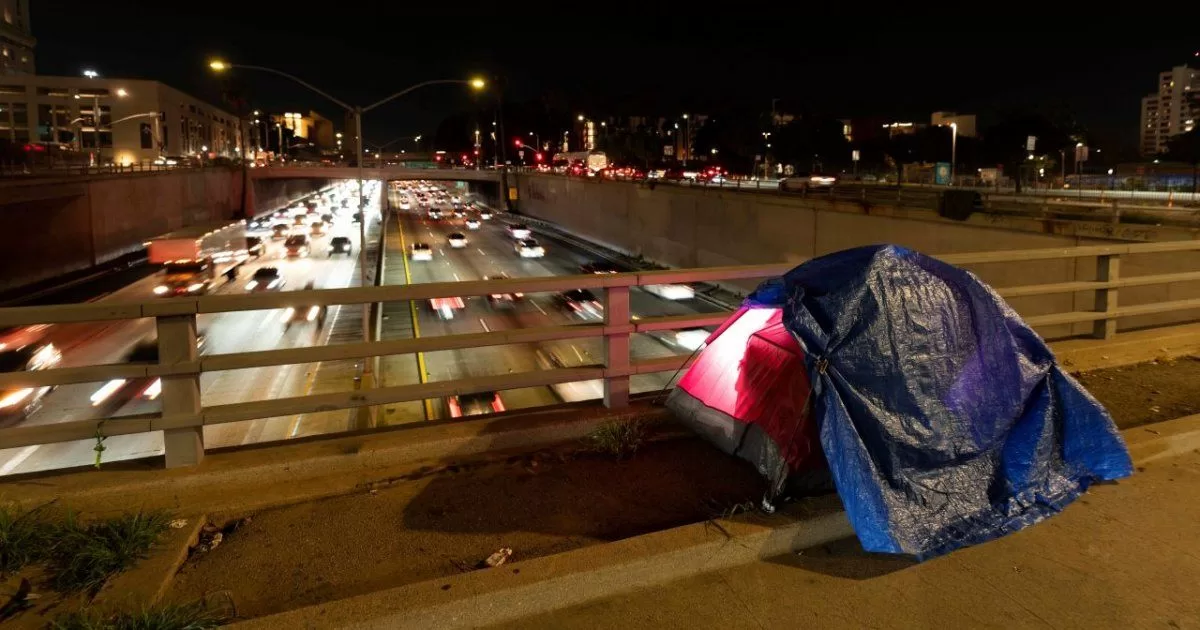-What was the reason why they started later?
-The work of preparing a government program took a long time, and until we were clear and certain about what we wanted to do, in what way and with whom, we understood that it was irresponsible to put together a candidacy. Later, advancing in a framework of alliances with a whole heterogeneous team, where there are different tribes, takes time and that was delaying us.
-Did you agree with Losada’s strong statements against Pullaro?
-The classic is to say that they took her out of context, but the truth is that Carolina never said that she was a drug trafficker or that she was not going to summon him. She questioned his handling of the police and she couldn’t imagine summoning him because she understood that she was going to win. We agreed that we had to have a campaign of contrast. Later, if you focus exclusively on the negative, it seems that there is no common point. Perhaps we should have expressed more clearly that the adversary was outside, regardless of whether we had differences.
-The fresh, disruptive Losada won in 2021. Didn’t you change those characteristics in this campaign?
-Possibly yes. It is also true that it was not a legislative campaign and it was necessary to show someone who seriously took the responsibility of governing Santa Fe and carry out a political project. Most of those who were in the creative part understood that the way was to show it more serious. It is counterfactual, but perhaps we could have had other results if Carolina showed herself more natural, as she is and as many people on the street asked her to be.
-Did you agree with that creative wing?
-With these aspects, yes, because I understood those arguments. I am not going to ignore a campaign in which I participated, but such aggressiveness was not necessary and that we had to move from aggressiveness to purposefulness. She was locked into that aggressiveness, you went to a place and they only asked you about the things she had said. She is like a person who has a scar on her head, one says “I don’t want to look at her” but there is no way not to look at her. The same thing happened here: there are things that generate an impact that it is very difficult to leave.
-When you talk about strategy, do you talk specifically about Lucio Guberman?
-No, it was a very large creative team. We had consultants and a creative team, like any campaign. It was not a single person, everyone had an opinion.
– But Guberman maintained certain leading role.
-There was no exclusive role, everyone had an opinion and had the right to be heard. There was a campaign direction: the need to contrast the new and the old, the classic political with the uncontaminated political, the figure of a woman versus others who were not women. Those things were there from the beginning, then the specific pieces are like when you have to write a document and there are three, there are three versions.
-How was your relationship with Guberman?
-He has a style, which I respect but do not share, that the only important thing is to generate conversation about you, no matter what is said. Obviously, no matter how much some say that this is in the manual of the super genius of the lamp of political communication, in practice it did not give results. In social media conversation summaries we were always ahead of Pullaro and yet we lost. We had to transmit something else and we lacked that, which for some, like Guberman, was on the negative side and for others it was on the positive side.
-Which side were you on?
I did a bit of balancing because as a reference for the leadership of the campaign, when I determined a position, it was not possible to go back, so I tried to synthesize those styles. That delay in decision-making conspired against a more efficient campaign.
-Were there actions within that contrast strategy that the political wing stopped?
Yes, a lot, because they proposed to go deeper each time and we didn’t agree and Carolina wasn’t comfortable in that role, so it was ruled out. It is one thing to contrast, another thing is to focus on the aggression against the other. We did not see the usefulness of having that attitude or that it is correct.
-And now that Losada does not accompany Pullaro, is it a natural consequence of all this?
-After the provincial PASO, we all focus on the national PASO. We could have coincided with Pullaro in some of Bullrich’s campaign actions, but he chose to accompany Larreta. Beyond accompanying the candidates who are from one sector or another, we must be united as a coalition, and that is the responsibility of those who won the STEP. There are pending subjects in terms of political order, of how to function in the future. It is not by Carolina’s decision that we still do not have a more oiled articulation with the provincial campaign.
“So it’s Pullaro who didn’t summon them?”
-No, it is not that we were not summoned, but that there has not been an instance of political order, neither with us nor with other political actors. There is a need to tidy up that gear to keep all the votes, because no one is going to keep them out of inertia, and secondly to show a coalition with the capacity to face what is coming. I am not making a complaint about this because we still have time, but there is not too much left for September 10 either.
-Did you talk to Pullaro?
-I have spoken with him, and Carolina called him the same day of the election. I also spoke with Felipe Michlig. I have not spoken at a political meeting established to have a forward agenda grid. I have met him, I have congratulated him. We will continue talking, I have no problems with anyone in that.
-Why neither you nor Losada went to the United post-election meeting?
-We were not summoned. It was for those who won the STEP and two representatives per party. From our space they were a lot. Those who think that we are refractory to the coalition because we lost are confused. We are here to accompany Unidos, confront Kirchnerism and win the election in all categories. We are going to have, if there is an instance of dialogue, proposals to make, as others will have with us, but we are not outside the campaign. We are without prominence, accompanying where we have to.
-Is the governor’s election already decided?
-You never have to say that with total certainty, it is well on its way.
-And that of Deputies?
-No, it will be a more complex fight. We have to see what happens with Granata or Argañaráz, who are the closest references to Milei in Santa Fe, how we process within the United States the votes that each list of deputies drew. We have an issue in favor, which is that Lewandowski’s campaign seems like that of an opponent and Perotti’s directly that of a Martian. They live in a stratosphere. With our disorder, with the difficulties we have to homogenize within the United States, the collapse of the national and provincial governments helps us a lot.
Why didn’t you want to be a candidate?
-First, because I understood that we had to give a message that we were going to have a winning option and that the best way to demonstrate that was not to be spared just in case. Second, and more importantly, because I have already been a deputy for three terms, we have to make room for new people. Today I have a thousand times more experience than when I took office, obviously, but it is also true that the classic functioning of the Legislature demotivates me a lot, and that means that one does not perform as one should perform. Specifically: so many nonsense is discussed that I no longer feel like going.
-And now that?
– I will continue accompanying. Political spaces do not end with an election. We have had to win and lose elections a million times, and we will continue to be. Obviously, the scenario will change according to how the national and provincial elections are and that affects the role that one may have, but I had already decided not to have a legislative position.
-And Executive?
-I am not desperate to have a position in the provincial government or in the national government, honestly.
– But if Pullaro offers it to you or asks you?
-Depends on the context. A priori, I do not have a position neither for nor against. It will depend on the political utility that one may have. Neither he needs me to join his government nor do I need to join him. If both he and I understand that it is useful, there will be no problem.
-Not you, but does the space have aspirations of being part of Pullaro’s cabinet?
-We do not have aspirations for anything, we are here to accompany you. It is the role that touches us. We are not going to lead the province, Maxi will lead it if he wins the election. And if the call is intelligent, it is reasonable, it contemplates all the political spaces of the coalition, the coalition is going to hold together and we will defend the government as if it were ours. If that does not exist, we will be pro-government supporters with our own profile within the coalition. If we do not participate in the decisions, we will have more freedom when it comes to giving our opinion and deciding.




